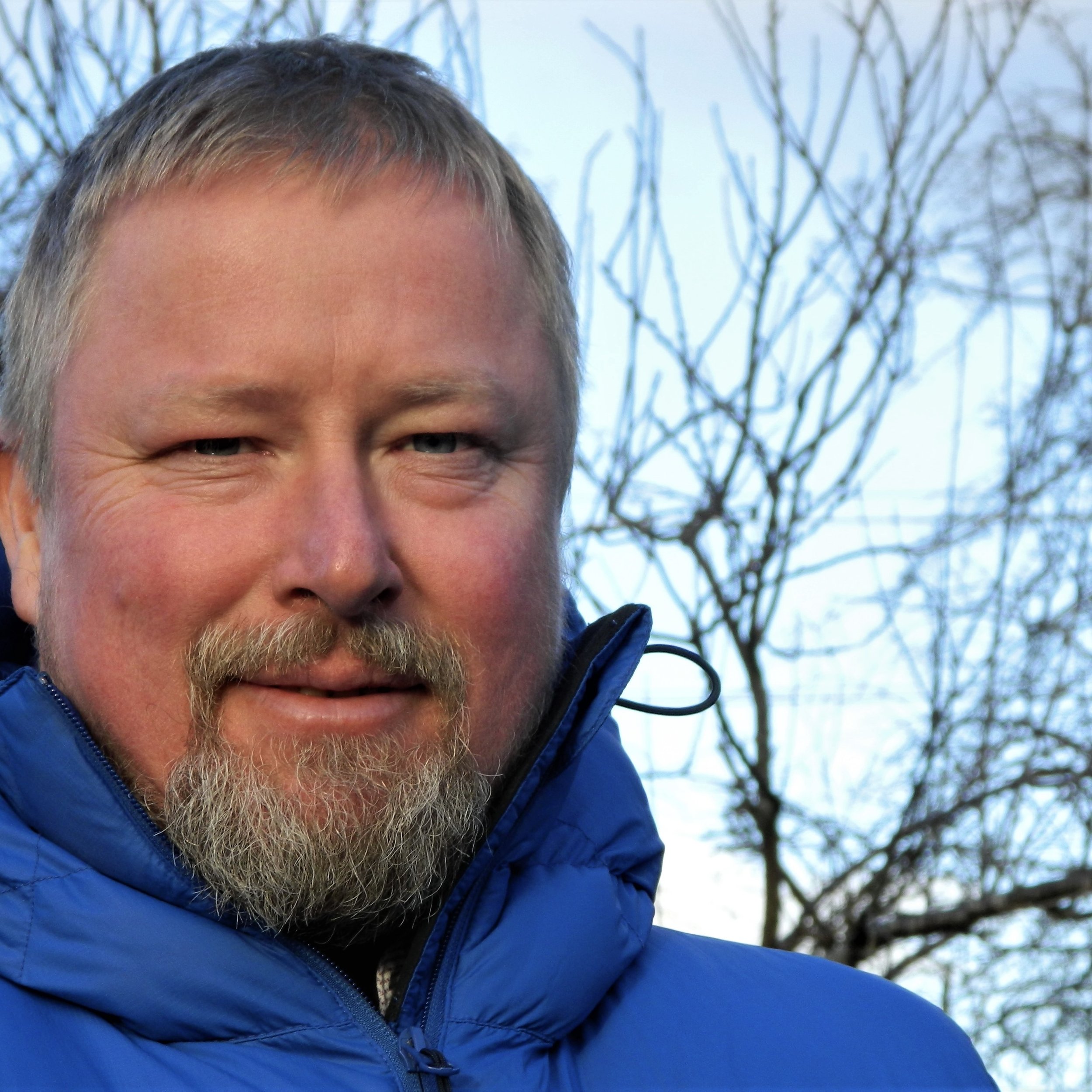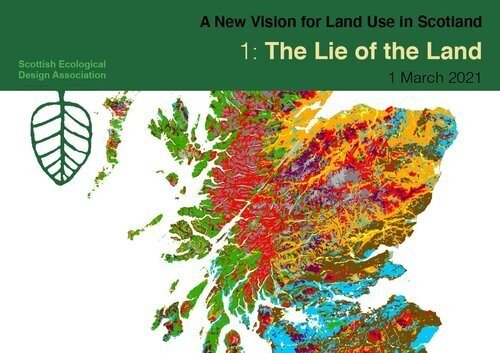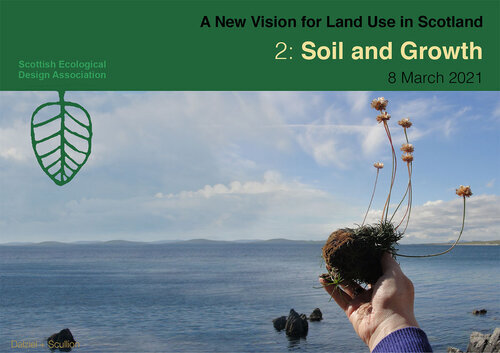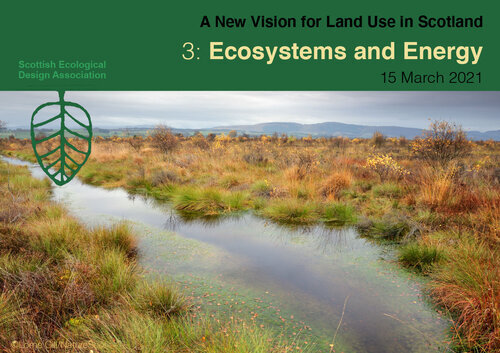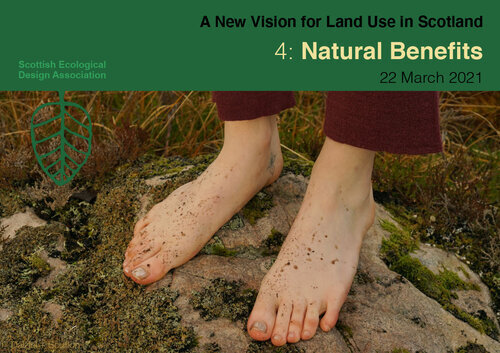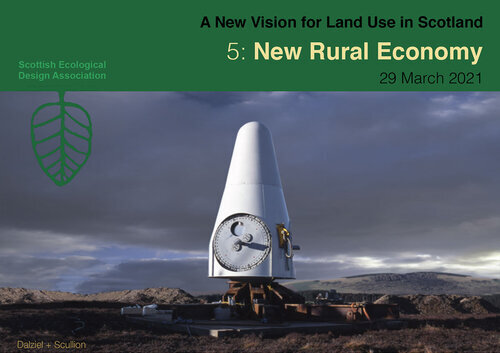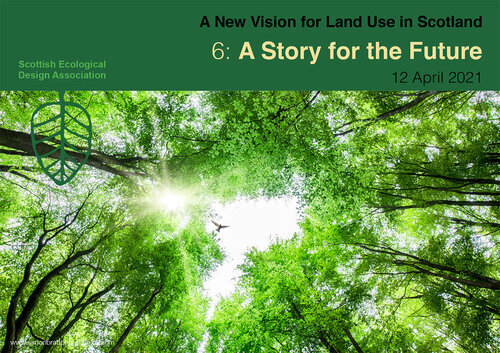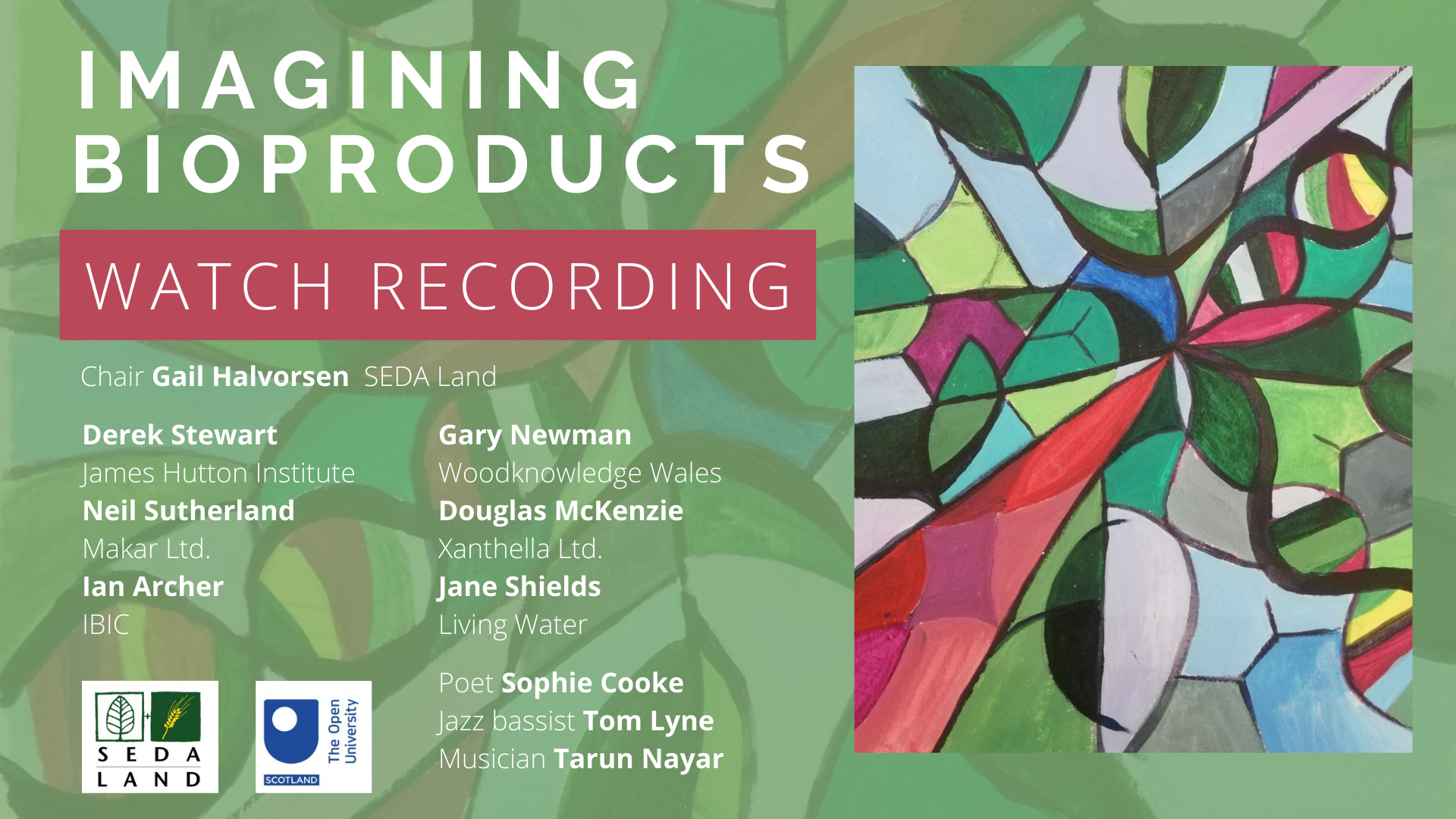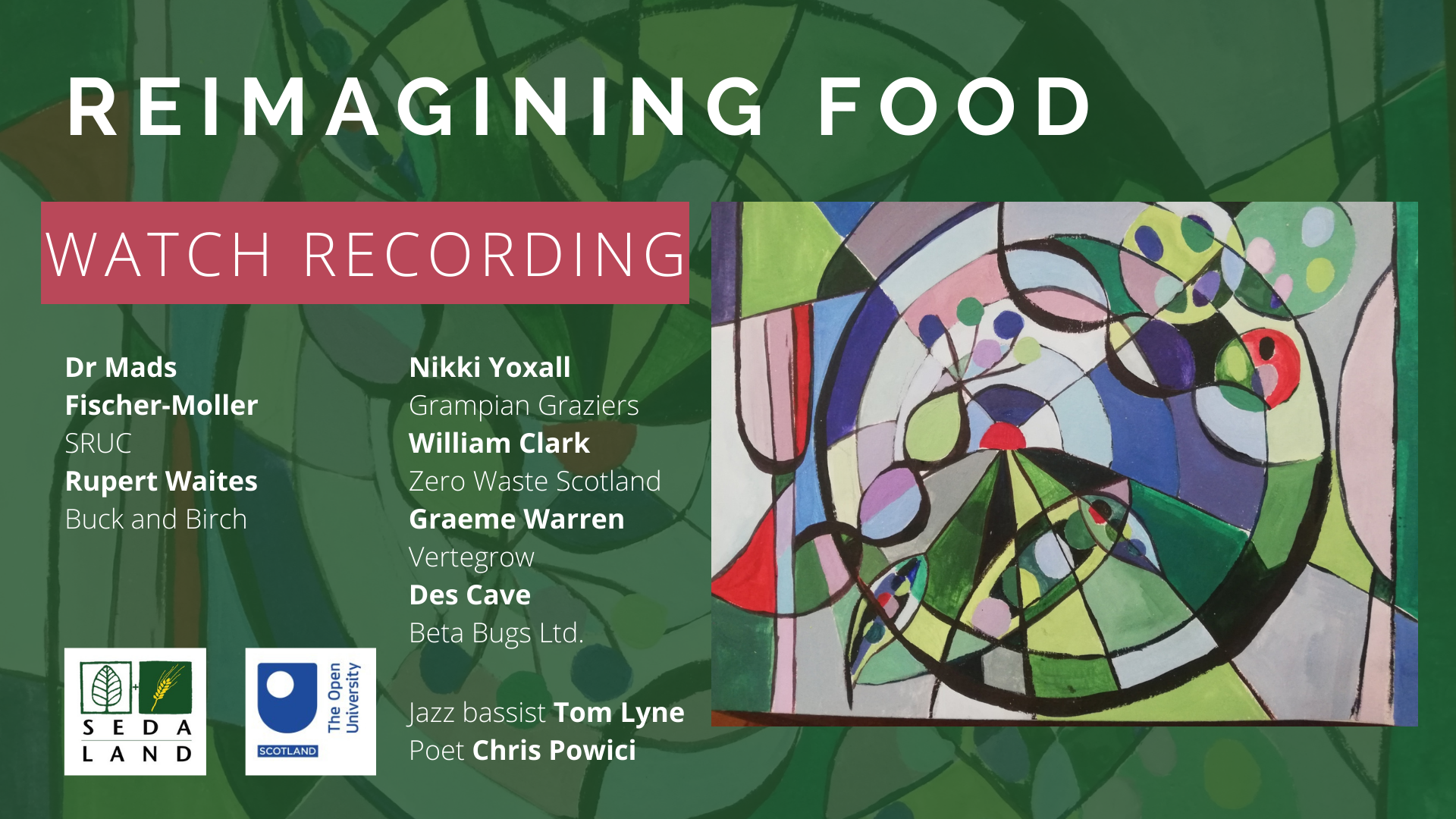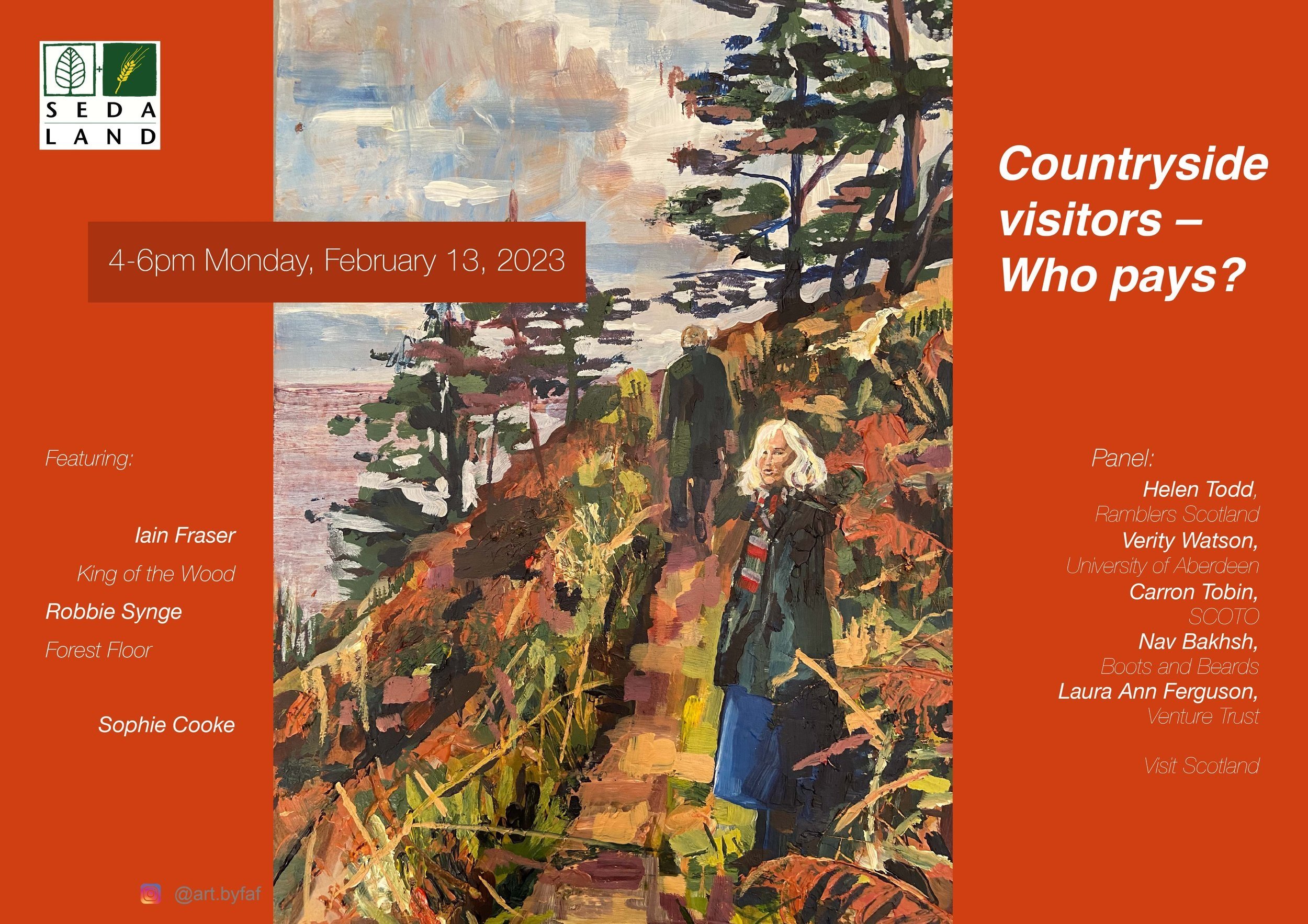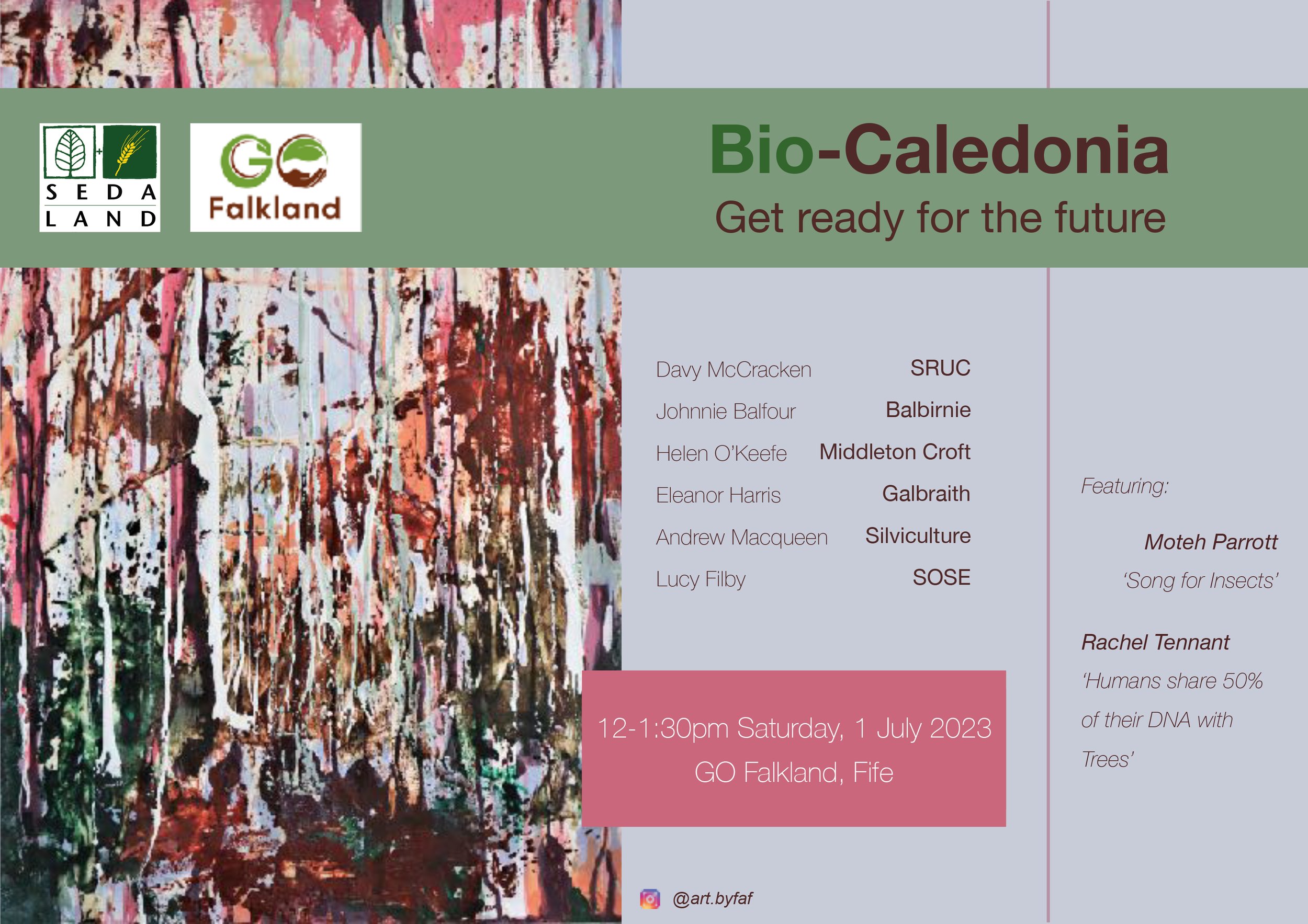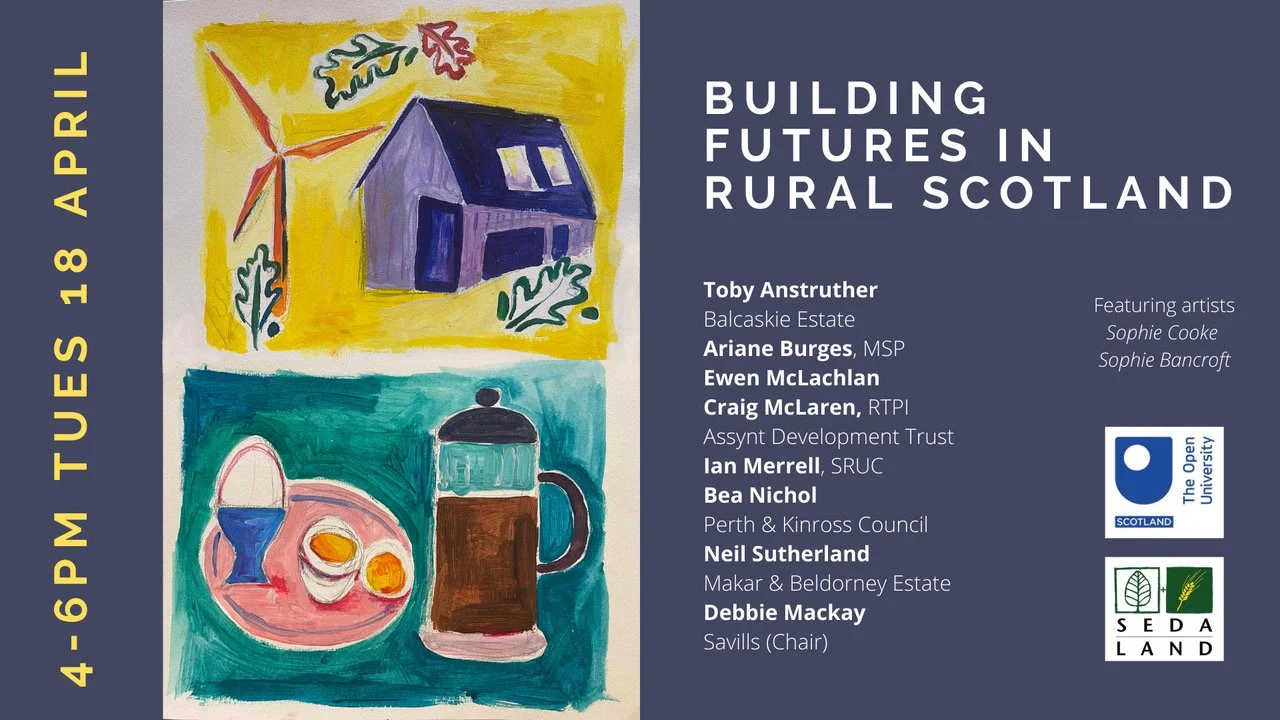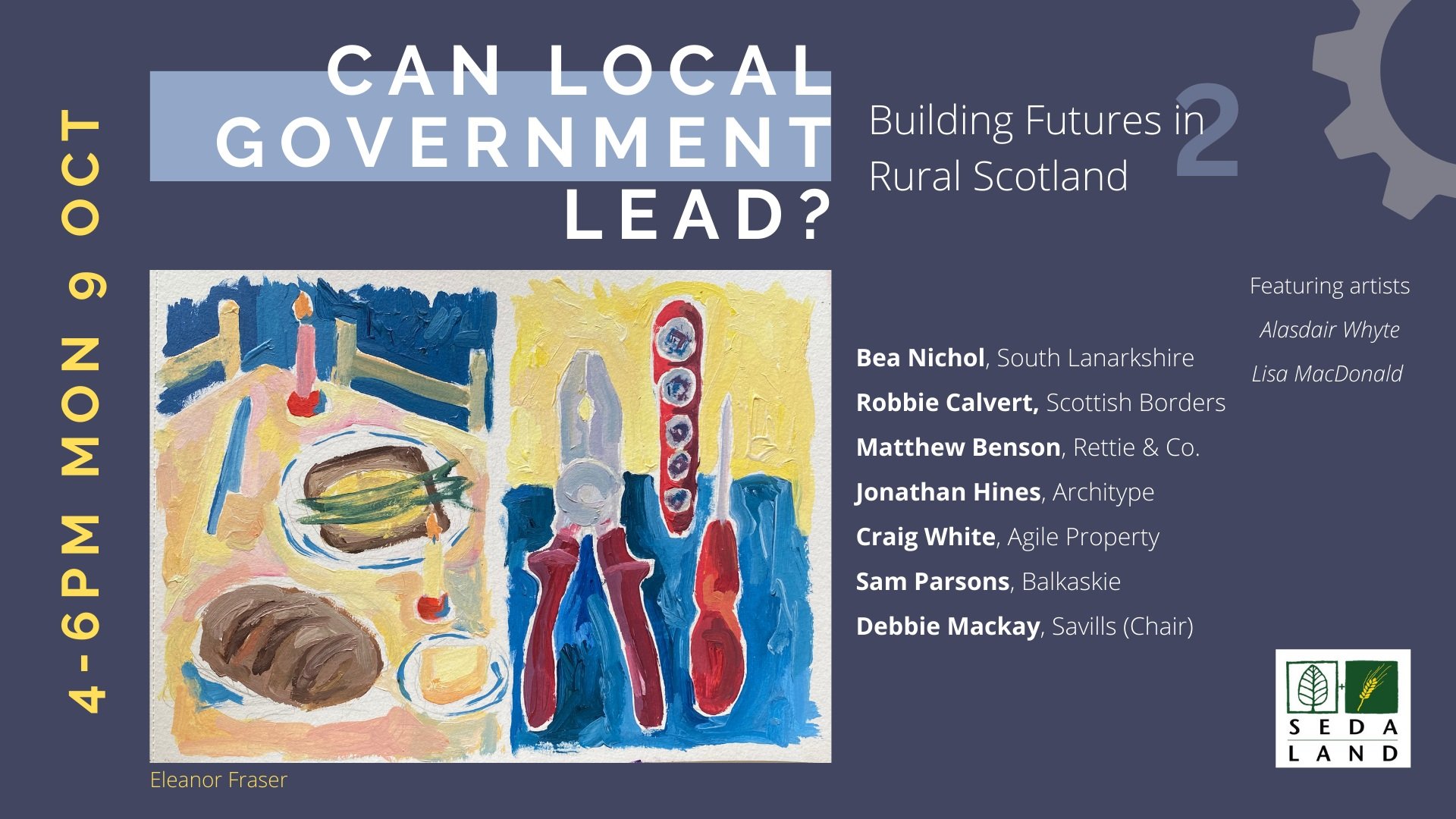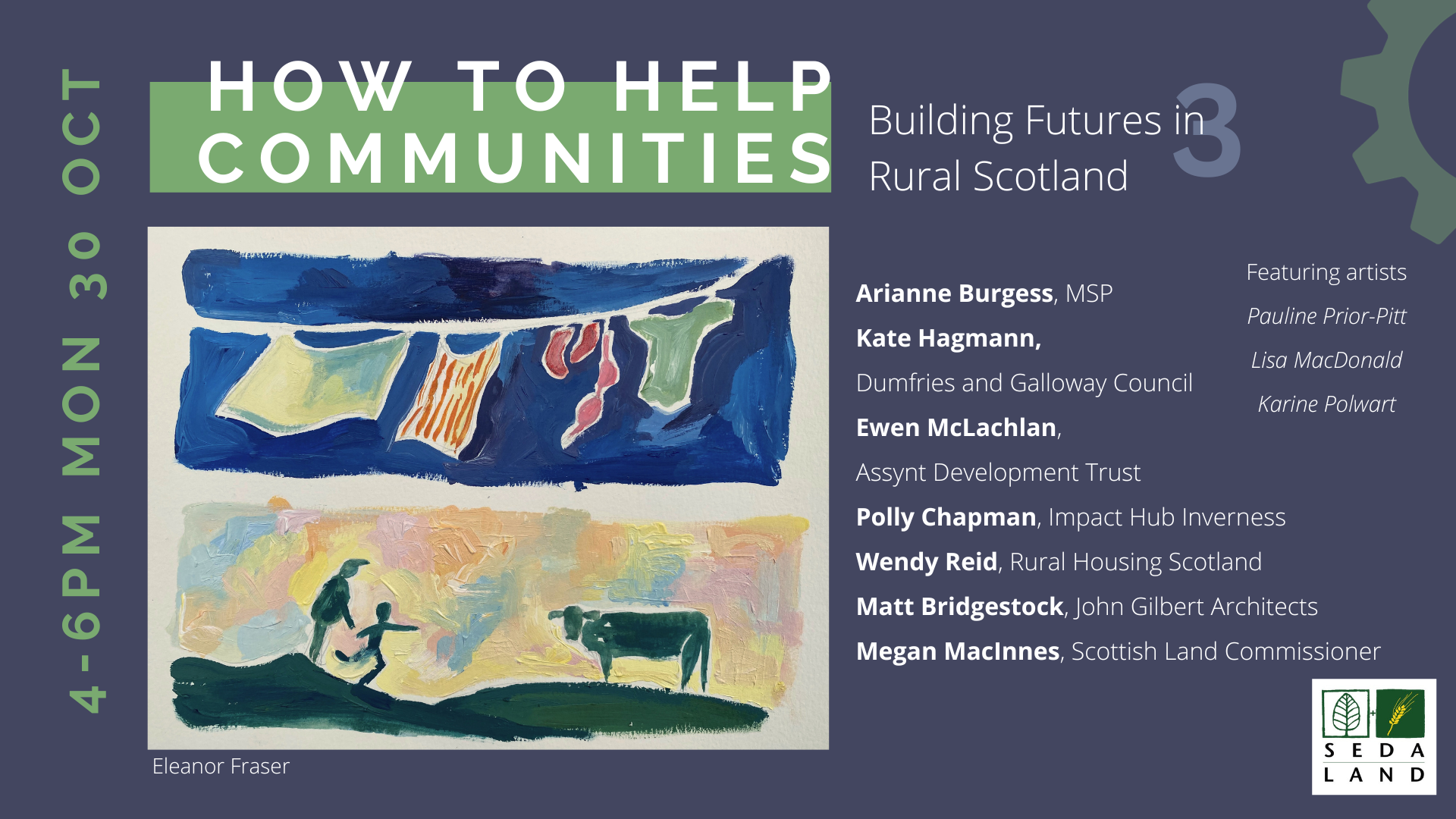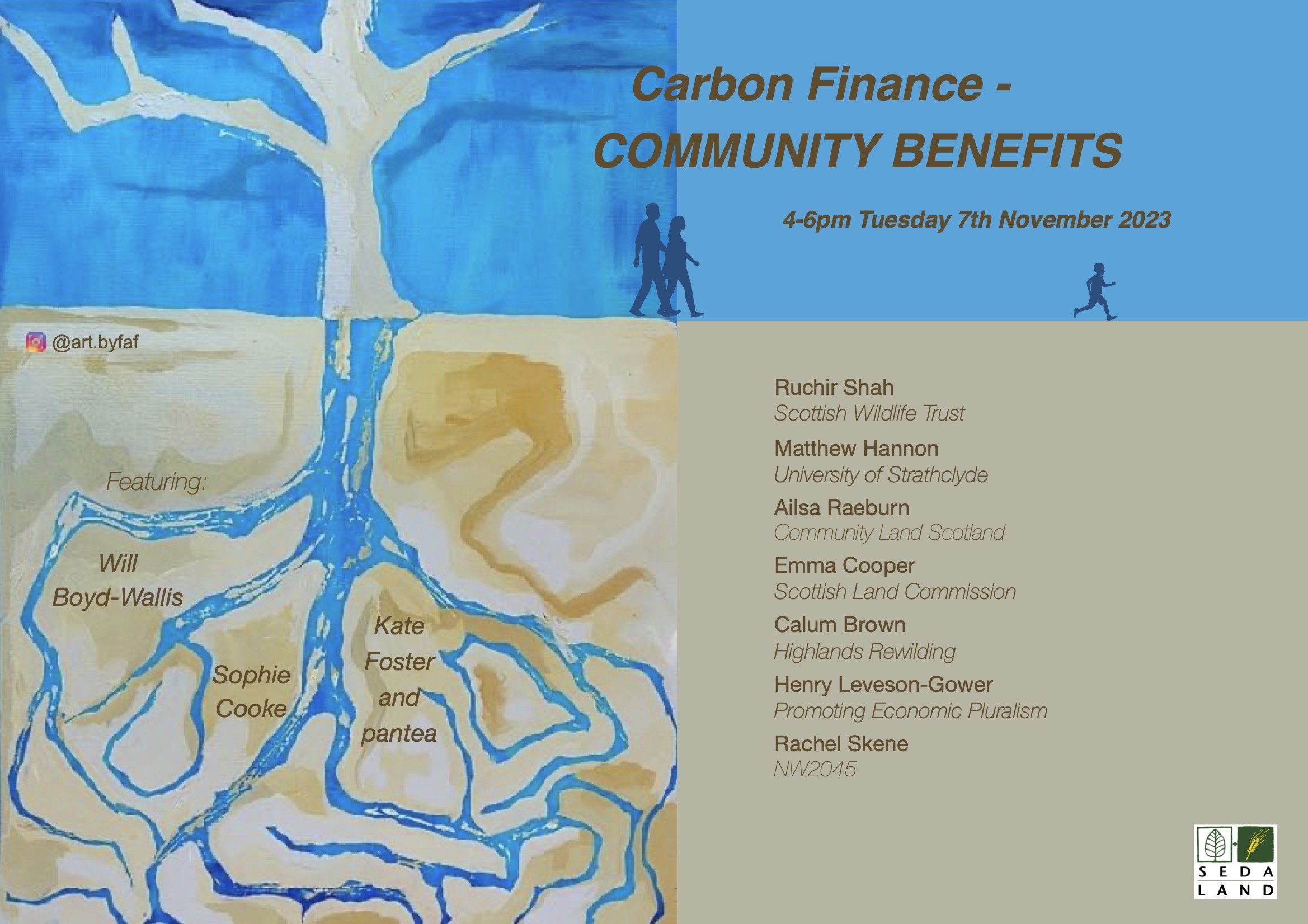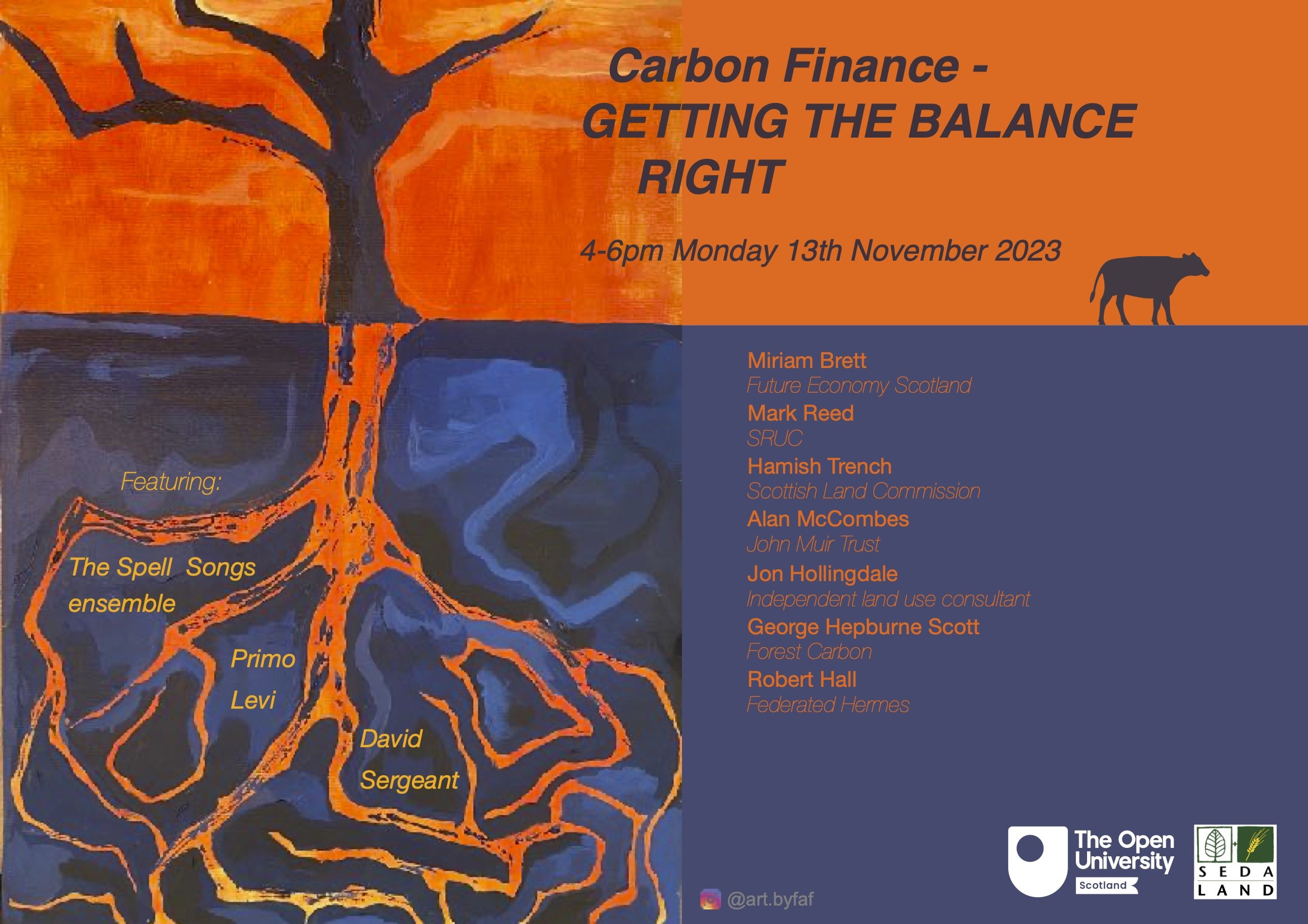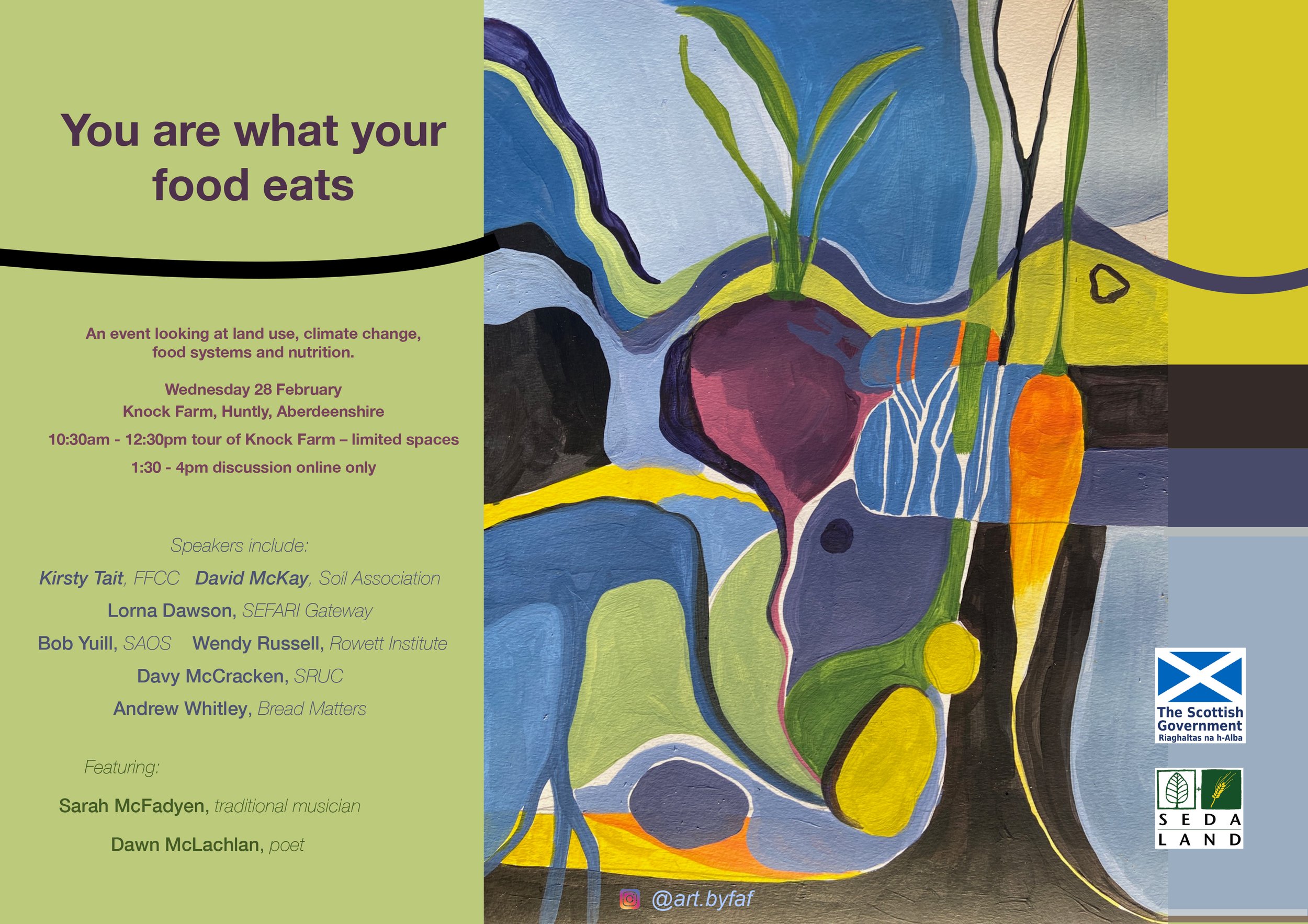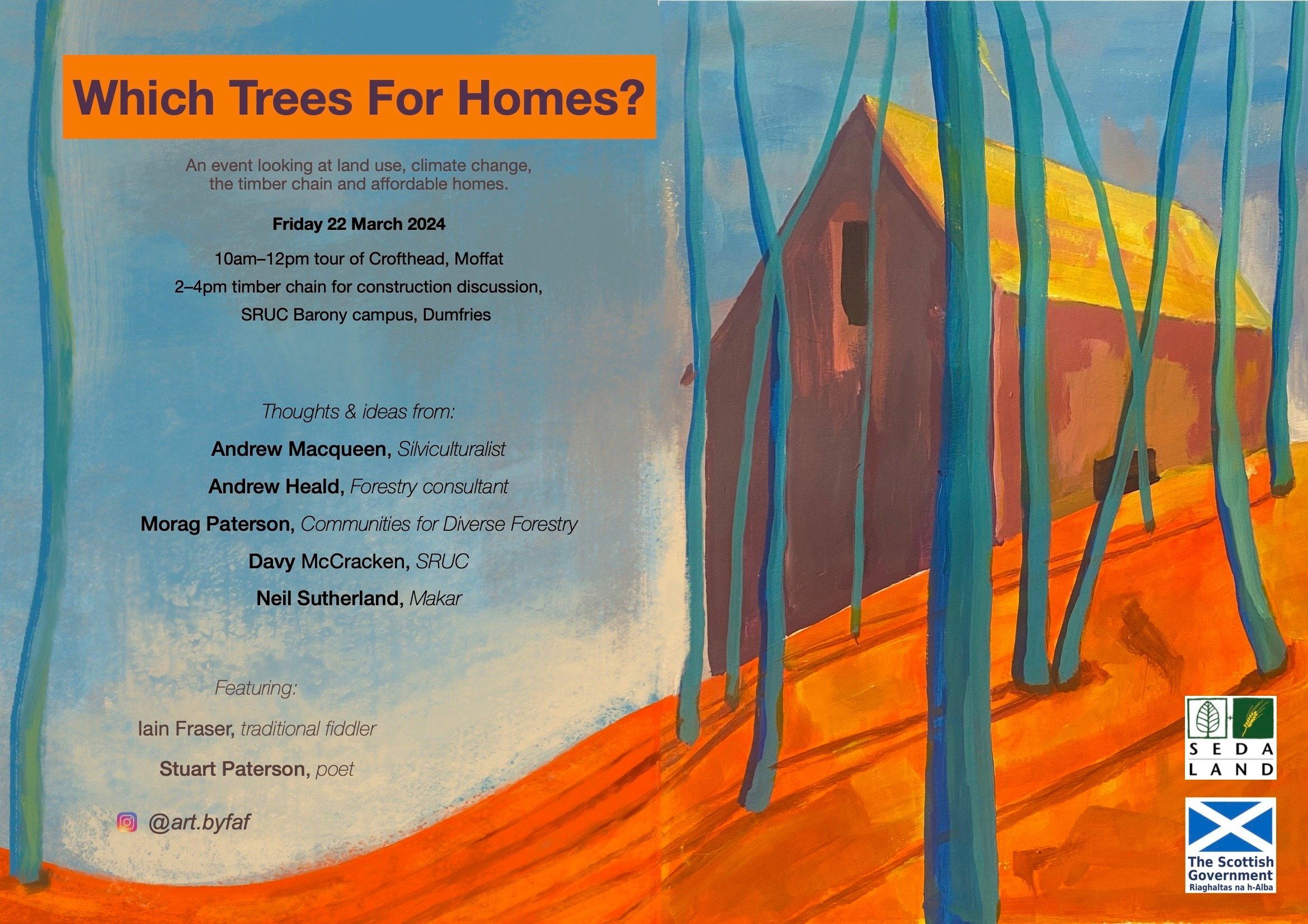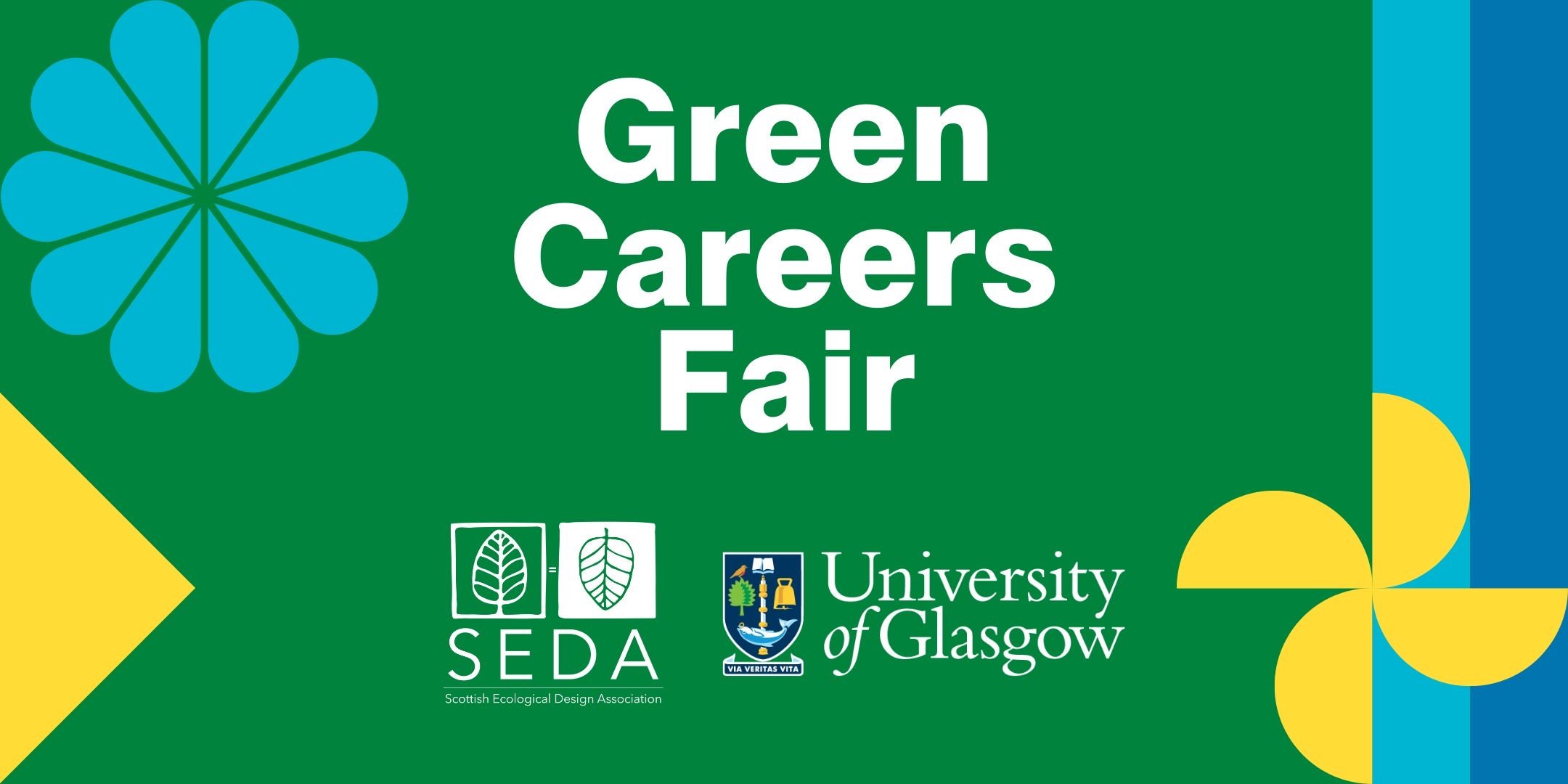A SEDA Land Conversation
Nature Finance – Public or Private?
4-6pm Monday, 28th April 2025
This online event, organised by SEDA Land, will explore where the money to finance nature recovery should come from, and how rural communities can thrive as Scotland’s natural environment is improved.
artistic contribution
Sophie Cooke, poet
This poem was commissioned for this event.
Sophie is a Scottish novelist, short story writer and poet. She is the author of the novels The Glass House and Under The Mountain. Sophie is a regular contributor to SEDA Land events having a strong interest in ecology, people and place and sits on the steering group.
Should we rely on the public sector to step up to the challenge of reaching Net Zero and bring socio-economic benefits? If so, how do we raise the taxes to pay for that in a fair and equitable way, for example on the "polluter pays" principle, through a carbon land tax or through other property taxes? Which specific tax reforms are most likely to hasten nature recovery in Scotland? Are Regional Land Use Partnerships (RLUPs) an appropriate vehicle to coordinate public and private investment to deliver landscape and catchment scale collaboration? Is luring in more private finance the way forward? Maybe it is a combination of the two?
The debate will be in the context of Scotland, with its limited devolved powers and wide regional differences. The panel will look in broad terms at at ways of addressing climate change and improving the environment – carbon sequestration, reversing biodiversity loss, flood management – and the benefits this can bring in terms of employment, strengthened communities, recreation, education, and health & wellbeing.
Without finance, achieving these goals is nigh on impossible, so it comes down to the age- old question: Where does the money come from?
PANEL
CHAIR: Nick Drainey
Freelance journalist
Nick Drainey is a freelance journalist based in Scotland, covering rural issues. He also writes walking guidebooks and has a popular Facebook walking group: Walking Scotland. He was formerly the news editor of The Scotsman as well as news editor of The Times Scotland. Nick has been a journalist since the days before Tony Blair was prime minister. Now freelancing from Linlithgow near Edinburgh, he has enjoyed written and broadcast work covering everything from walking guides and features to hard news stories He specialises in the outdoors from a love of hill walking and is passionate about all issues affecting rural life, from deer numbers to enterprising individuals setting up businesses and coming up with new ideas.
David Fleetwood
director of policy, John Muir Trust
Graeme McCormick
former director, Business for Scotland
Graeme McCormick is a retired solicitor who specialised in urban and rural conveyancing transactions during his 40+ years in practice.
Since 2014 he has researched land as the principal source of public funding and has held nearly 100 presentations of his finance model, Annual Ground Floor and Roof Rent (AGFRR). This funding model could revolutionise not just taxation but the eradication of poverty, encouragement of enterprise, responding to AI and globotics, and a cultural change in the stewardship of land and property.
David was Head of the First Minister's Policy and Delivery Unit at the Scottish Government until last month when he moved to become director of policy at the John Muir Trust. Previously he headed th Scottish Government’s Climate and Public Series and First Minister’s Question Team. David is a board member for Framtidshavet Norway – Ocean Scenarios Foundation – a global, non-profit and independent foundation that raises awareness of the problem of plastics in the sea.
Henry Leveson-Gower
founder & CEO, Promoting Economic Pluralism
Howard Reed
founder & director, Landman Economics
Henry is founder and CEO of Promoting Economic Pluralism and Director of New Economic Knowledge Services, its consultancy arm. He works to open up thinking and action on economic organisation to different perspectives through editing and publishing The Mint Magazine and supporting innovative action on the ground. He is working with a range of landscape regeneration projects to support innovative collaborative multi-stakeholder approaches that gain private funding while also being adaptive over the long term to changing science, policy and circumstances. This approach developed from his time as a research fellow at the Centre for Evaluating Complexity Across the Nexus at the University of Surrey in 2017. He is a Fellow of the RSA and a qualified chartered accountant.
Lewis Ryder-Jones
advocacy adviser, Oxfam Scotland
Howard is Senior Research Fellow in Public Policy working as part of a team in SWECW examining the health case for basic income and a broader programme of policy development. His particular focus lies in exploring the economic and health economic impacts of public policies such as in Treating Causes not Symptoms: Basic Income as a Public Health Measure. He is a leading specialist in microsimulation modelling of tax-benefit systems and other applied microeconomic analysis and is Director of Landman Economics. In 2008-09 Howard wrote the original version of the tax-benefit model used by the Institute for Public Policy Research and the Resolution Foundation, which has evolved into the Landman Economics Tax-Transfer Model (TTM), one of the leading tax-benefit microsimulation models in the UK. Before founding Landman Economics, Howard was Chief Economist and Director of Research at the Institute for Public Policy Research from 2004 and 2008.
Rachel Skene
manager, Regional Land Use Partnership NW2045
Lewis is Oxfam’s Advocacy adviser in Scotland working across all Oxfam Scotland’s influencing priorities, including fairer taxation. He played a central role in developing the new Tax Justice Scotland campaign that is backed by over 50 organisations. The campaign focuses on making the case that Scotland’s devolved and local tax systems can, and should, do much more to drive positive social and environmental change. He has worked in policy and campaigning roles in Scotland’s third sector for almost a decade and holds a Masters in Comparative Public Policy from the University of Edinburgh.
Rachel returned to third- sector working, after 10 years in the public sector with HIE, in 2022 when she joined Northwest2045 – a place-based collective of third, private and public sector people who collaborate to support delivery of the community generated NW2045 Vision VISION | NORTHWEST2045 . NW2045 is contributing to the Scottish Governments ambition to see greater agency develop at a regional and local level. Rachel has sought to support place- based, community led action and research; to distribute available resources within the community. This is being achieved by investing in communities to co-lead: to do the work collaboratively.



